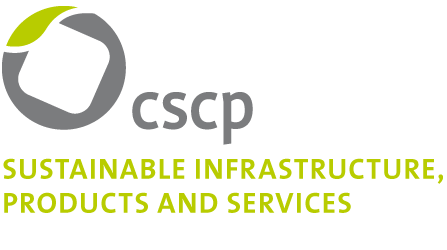

What makes a product sustainable? Which products and services drive innovation? What infrastructure do we need to foster sustainable behaviors? On a base of systems thinking we take a more holistic point of view with our stakeholders and provide tailored solutions as trend analysis, tolls and standards for sustainable products, evaluation and dialogue platforms. Learn more...
With the aim of making sustainability easy, improving lives for all, the CSCP launched a series of events named the “Workstudios”. These multi-stakeholder events combine keynote speeches, TED-style panelists, visioning workshops, strategic planning and match-making activities [...] Read more...
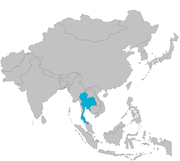
Thailand has long been recognized as a highly competitive Asian base for vehicle production. The industry has experienced rapid growth over the past decades and this growth has had environmental consequences. SMEs represent a large proportion of the auto and automotive parts sector in Thailand. Read more...
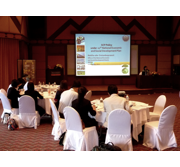
Thailand has among the most highly developed SCP policy frameworks in Asia. The success of sustainable consumption approaches is in part connected to the Thai tradition of being a sharing society. Read more...

Energy efficiency offers among the greatest quickest, and most cost-effective options to reduce energy consumption and mitigate climate change. There are various technologies and policy [...] Read more...
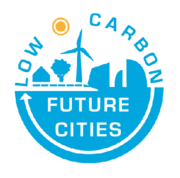
Increasing urbanization and climate change are two of the great challenges of the 21st Century. Cities cover only 1% of the Earth‘s surface, but are already home to about 50% of the Earth‘s population. Up to 80 % of global greenhouse gas emissions are estimated to originate in urban areas, providing large mitigation potentials [...] Read more...

Today, resource efficiency (RE) and cleaner and safer production (CP) are fundamental elements in the progression towards a future low-carbon economy and society. Improvements in resource management play a key role in limiting energy consumption and greenhouse gas emissions [...] Read more...
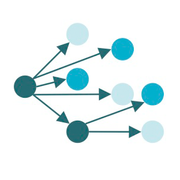
Successful dissemination of sustainable products and services is necessary to support sustainable lifestyles. As a cooperation and communication tool an online platform [...] Read more...

What is measured has a higher chance of being effectively managed. Indicators are measurement instruments and are therefore an important tool for fostering Sustainable Consumption and Production (SCP). Read more...

Efficient communication and interaction between policy makers, administrative agencies and the scientific community is needed to create a more sustainable society. Only through a network of these different actors is it possible to identify needs and potential solutions. Read more...

Successful dissemination of sustainable products and services is necessary to support sustainable lifestyles. As a cooperation and communication tool an online platform can enable targeted communication between relevant stakeholders [...] Read more...

The building and construction market with its emerging interior renovation and decoration activities is booming in China. But there are severe health and environmental [...] Read more...
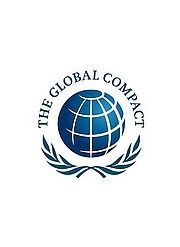
Supporting sustainable consumption is becoming an ever more important issue for business. New consumer movements, such as the LOHAS (Lifestyles of health and sustainability) are emerging. Read more...
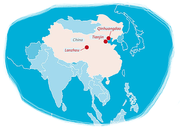
Since the 1980s China undergone unprecedented economic growth and urban areas continue to rapidly modernise. However, this economic growth has taken its toll on China’s environment and natural resources. Severe water and air pollution in particular are threatening ecosystems and human health. Read more...
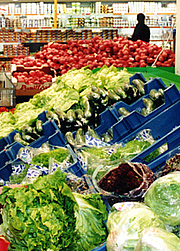
An effective shift toward Sustainable Consumption and Production (SCP) will require new and different roles for different actors. The retail sector has potential to affect change in society like no other industry given their [...] Read more...

The demand for natural resources is increasing across the world and in several cases resource scarcity is a major factor behind increasing resource prices. Many experts predict that this will be a long term trend. As answer to resource scarcity and a vital element [...] Read more...

Policy makers are in a unique position to boost resource efficiency. Reducing resource consumption and increasing economic and social wellbeing will provide substantial benefits for both society and the planet. Read more...

Energy efficiency is one of the quickest and most effective methods to reduce greenhouse gas emissions and improve air quality. Efficiency makes energy available to people while at the same time [...] Read more...

Self sufficient and environmentally friendly development in rural Africa is a priority for alleviating poverty and building sustainable communities. The dissemination of a solar oven technology for bakeries in rural regions in Africa supports [...] Read more...

Only what we measure can we know. To increase the sustainability of consumption and production it is therefore necessary to develop sound methods to measure environmental impacts along product value chains. Read more...

Combine the knowledge of two countries to establish new global standards for SCP. Germany and Japan are among the leaders in environmental technologies, and they are currently pursuing advancement in the strategic issue of sustainable resource management. Read more...

Analysing hot-spots of resource consumption is an effective way to identify the potential for increasing resource efficiency in global value chains. For this reason hot spot analysis can play an important role [...] Read more...

Today, resource efficiency (RE) and cleaner and safer production (CP) are fundamental elements in the progression towards a future low-carbon economy and society. Improvements in resource management play a key role in limiting energy consumption and greenhouse gas emissions [...] Read more...

Sustainable products and services offer untapped opportunities for future oriented entrepreneurship and innovation. Some 80% of the life cycle environmental and social impacts that arise from products are determined during its planning and development phase alone. By fusing creativity, understanding and entrepreneurship, eco-friendly, fashionable, and fair products and services can be realised. Read more...
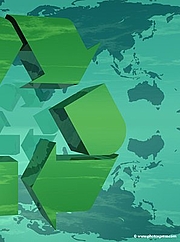
Effective recycling systems are central to resource conservation and material efficiency. Recycling transforms waste into a resource that can be reintegrated into production processes. Consequently, the application of recycling technologies [...] Read more...

Resource efficiency forms the backbone of a sustainable economy. It enables companies to produce products with fewer resource inputs and by extension reduce environmental impacts, including emissions of greenhouse gases [...] Read more...

Value chain actors play an important role in shifting the behaviour and lifestyles of customers in favour of sustainable consumption. In order to cope with their joint responsibility to promote sustainable consumption, retailers and manufacturers are in need of a collective strategy. Read more...


